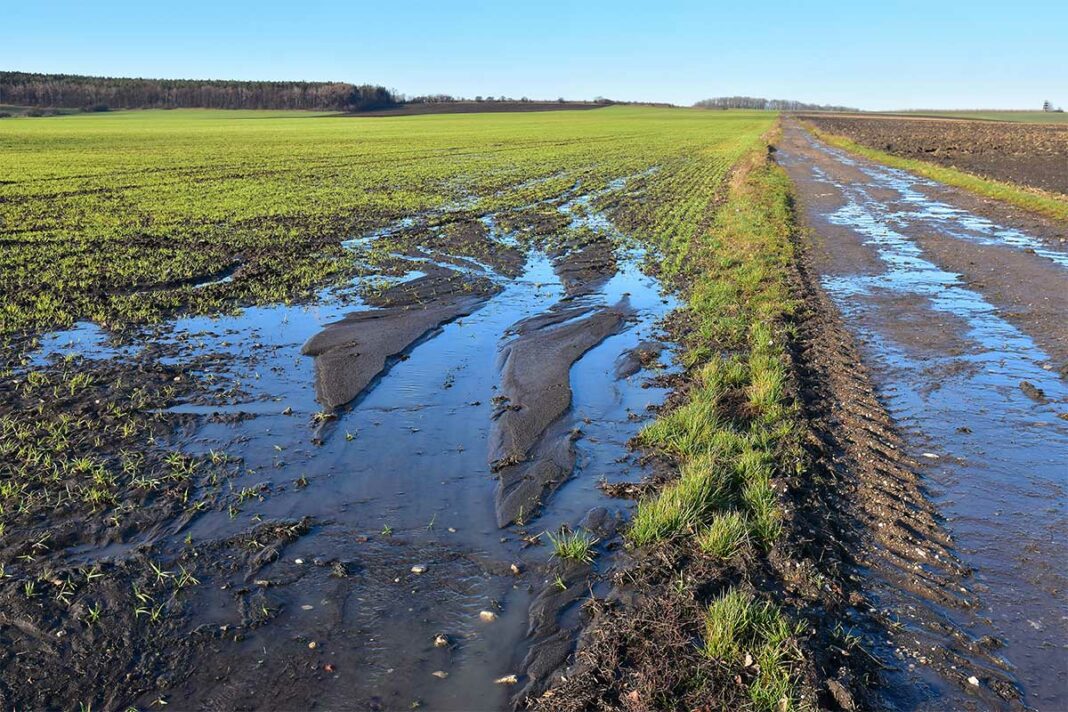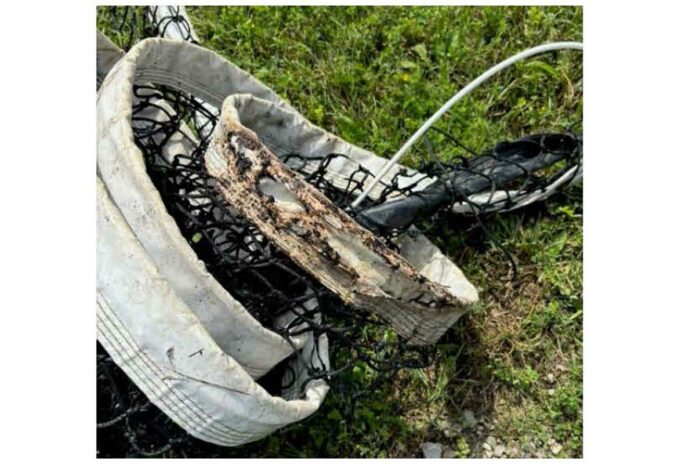NORTHEASTERN ONTARIO—Farmers in the region are contending with the challenges posed by an unusually wet season as excessive rainfall impacts agricultural operations across the board.
Providence Bay farmer Lyle Dewar reported a staggering 23.5 inches of rainfall since the spring thaw, significantly higher than the region’s average of 527.3 mm (20.75 inches). This deluge has created a series of obstacles for farmers trying to maintain their crops and livestock.
On Monday, July 15, Environment Canada issued heavy rainfall warnings for Greater Sudbury and North Bay, predicting up to 100 mm of rain in certain areas. The storm left a trail of damage, washing out roads and creating sinkholes in the North Bay region.
Manitoulin Island also experienced unusually high rainfall, recording 0.30 inches compared to the historic average of 0.10 inches.
For many farmers, the persistent wet conditions have made hay production particularly difficult. “The fields are damp, and it’s hard to dry the hay,” explained one farmer. “If you grab it too soon, it will mildew. It needs to be really dry.” This has forced some farmers to adjust their hay handling practices, waiting until fields are dry enough to run their hay bailers and spending extra time drying.
Mr. Dewar noted that while the pastures are lush, managing hay quality remains a challenge. “Last year was so dry I was feeding the hay in September instead of November. It cuts into your feed growing season,” he remarked.
Eric Blondin of Three Forks Farm provided insight into the broader impact on crop management. “The season’s going fairly well, but whether it’s really dry or really wet, each comes with its own set of challenges,” he said. “With a wet season, our irrigation pond levels are good, and we’re not having to irrigate a lot, which is great. However, we’re seeing a lot more aphids and increased disease pressure due to the humidity.”
Aphids, typically a fall problem, have become prolific, significantly reducing the quality and yield of some crops. “Some crops, where we usually get two or three weeks of harvest, we only got one before the aphids took over,” Mr. Blondin explained. “We had to work everything else into the soil because the quality was so poor.”
Additionally, the combination of heat and moisture has led to an explosion of weeds. “The weeds are growing double time, and it’s not as gradual as usual. We’re struggling to keep up with our weeding,” he added.
To cope with these demands, Three Forks Farm has temporarily halted their market activities to focus on their fall crops, including carrots, beets, parsnips, winter squash, onions and garlic. “We need more hours to ensure our fall crops are properly tended to so we can keep our store open as long as possible into the winter,” Mr. Blondin said.
The rainy season in Northeastern Ontario underscores the delicate balance farmers must maintain. While water availability has improved, the associated challenges of pest management, crop quality, and weed control require significant adjustments and continuous effort from the agricultural community.






